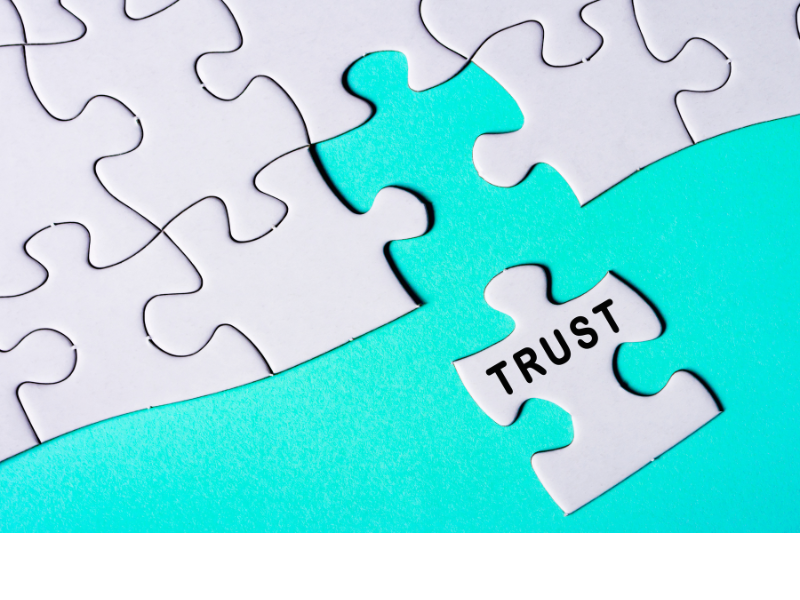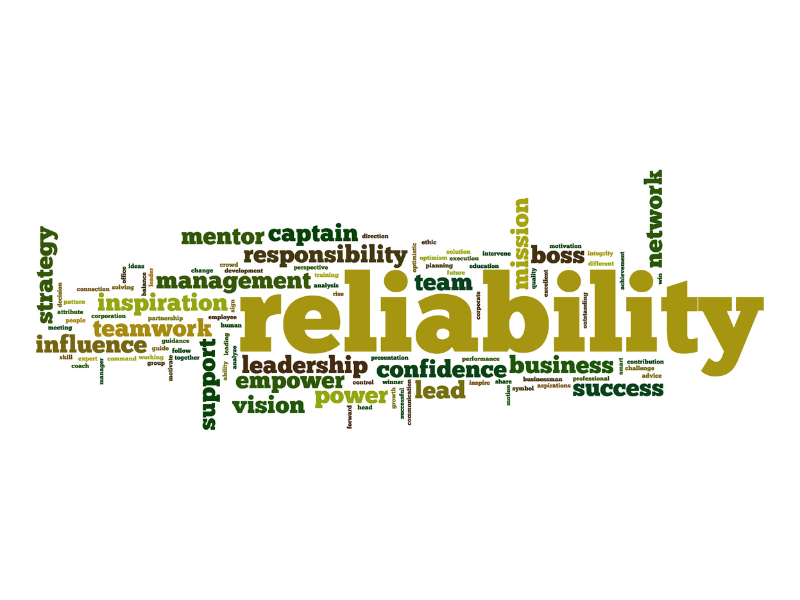This article explores how you can start (or continue) to build a culture of trust in your workplace.
We will take a deep dive into the qualities that make people trustworthy, you may like to explore these ideas by yourself or with your colleagues and/or friends
While reading you may notice that you have insights about yourself, and we firmly believe this is great, even if a little uncomfortable. It’s all about awareness first, curiosity second and then a good chunk of practice.

Before we explore and unpack trust in the workplace, I’d like to take a moment and honour one of our biggest inspirations, Dr Brené Brown. With lucid clarity, Brené describes the ‘Anatomy Of Trust’ which has influenced much of this article.
Brené uses the acronym BRAVING which we will delve into here and give pointers to help you further explore these ideas.
First up..
B is for Boundaries
A lack of boundaries can look like saying “yes” out of a desire to please, even when you’d prefer to say no.
You may feel guilty if you say no and fear that people will think badly of you which can lead you to overcommitting yourself and resulting in you feeling obligated.
You may even fail to speak up for yourself when people treat you badly or make you feel uncomfortable, over time you may develop really clever ways to deflect how you feel about it rather than standing up for yourself.
These kinds of behaviours are also typically linked to the identity of being a ‘people-pleaser’.
A lot of us are people-pleasers due to a need to create safety for ourselves in various dynamics.
However, it means we have ended up with weak boundaries putting others before ourselves almost always.

What if next time you were asked to do something that you didn’t want to do you said, “I really appreciate you asking me, and usually I would say yes, but I am at capacity and I’m unavailable to take on extra work”.
With a response like this, you would be honouring, respecting yourself and you’d be clear, honest, and authentic with no room for second-guessing from the other person.
Clear is kind.
Boundaries build trust in the workplace because you and others can recognise and communicate your capacity to honour yourself, your limits, and your work.
R is for Reliability
Do you consistently do the things you say you will do?
Now, there are always times in our personal and professional life when we’re thrown a curve ball or hit a crisis and things don’t get done.
But, day-to-day, most of the time, are you showing up for what you’ve said you will show up for?
Do you know anyone who has a reputation for being a bit flaky, a bit unreliable, and do you typically trust those people to show up on time, or at all, when you make a plan with them?
Are you able to rely on yourself?

Do you trust yourself enough that if you say you’ll do something, you actually do it?
Food for thought.
Reliability builds trust in the workplace because you know someone will follow through on their word. That’s gold!
A is for Accountability
Being accountable takes courage because it requires us to be vulnerable. In taking a closer look at ourselves, putting our hand up and saying, “yep, I did that and I made an error” (or words to this effect) we get to better understand ourselves and demonstrate that we are willing to own it.

It is oftentimes pretty radical to really own it, and it can undoubtedly be uncomfortable too. Especially in a work environment where ‘mistakes’ cost money and resources, and especially if there is a lot of bravado, competitiveness and unhealthy power dynamics enmeshed in the work culture.
Do you tend to avoid or hide instead of taking responsibility for your actions?
Accountability builds trust in the workplace because it’s the quickest and most efficient way to get through challenges; people who demonstrate accountability are typically highly respected and trusted.
V is for Vault
We love the concept of the vault.
Have you ever been speaking to someone who then unveils a colleague’s (or friend’s) secret that wasn’t supposed to be shared?
Perhaps you know you shouldn’t be listening to it, but a bit of gossip here and there is okay, right?

Unfortunately, gossiping is often an outcome of an already toxic culture.
The ‘vault’ is your ability to keep personal conversations that are meant to be private, private. If you’re not sure if you can share what you’ve heard, the best thing is not to share it.
You know when someone nonconsensually shares someone else’s stuff with you, they actually give themselves away (as someone untrustworthy) and you are less likely to share with them about yourself (or perhaps regret doing so after).
The vault builds trust in the workplace because you feel safe sharing personal things with colleagues or friends.
I is for Integrity
Are your words and actions congruent with your values?
Integrity is when your words, actions, behaviours and values are aligned.

You know someone is out of integrity when they tell you something that doesn’t align with something they’re doing. I.e. the person who says they’re a vegetarian and then they are eating a chicken salad. That’s pretty confusing, right?
Where are your words and actions aligned? And where are they not aligned?
Integrity builds trust in the workplace because it displays a strong moral compass, a person of their word.
N is for Non-judgement
The majority of people are unknowingly judging and comparing themselves to others all of the time. We’re hardwired to do so actually.
There was a time when we did so for our physical survival.
We tend to judge and compare ourselves to others when we aren’t feeling good in ourselves i.e. tired, stressed, hungry, working hard or closing in on a deadline.

Our judgments are often a reflection of our own insecurities, self-limiting beliefs, and expectations due to our conditioning.
A great practice is to begin to catch yourself when you are judging others.
Can you notice what particular quality you are judging in them? If you can catch it, chances are you actually harbour that quality yourself and/or want to harbour that quality more.
Yeah, ouch.
Non-judgement (or being mindful of judgements that arise) builds trust in the workplace because it cultivates a culture of kindness and friendliness, looking beyond surface-level reactions.
G is for Generosity
Are you generous with your time, resources, and skills to help others as best you can?
Now, this can be a sneaky one because, of course, it works best when you’re knowing and sticking to your boundaries!

In this context, generosity also means being generous with your assumptions and projections of other people’s behaviour i.e. if people make mistakes or don’t show up in a way you expected.
Being generous builds connection, psychological safety, and an environment conducive to honesty, authenticity, and courage.
Being generous builds trust in the workplace as it provides a supportive environment to help others learn, grow, and give their best.
This article breaks down big and lofty ideas into chunks for you to explore in your own way.
At work, these can be discussed and explored within your team, just by starting the conversation.
It’s not about getting a perfect score, we’re human.
It rarely helps to point out other people’s faults, but it’s incredibly effective and courageous to recognise where you can show up more because there will almost always be space for this.
Imagine saying “In the past, I’ve been unreliable/gossipy/judgmental. I now recognise I want to do my best to remedy this.”
Wow, how much trust could that build in demonstrating that level of accountability?!
Building a culture of trust in the workplace is a huge step towards creating an environment where people thrive.
For more information on how to build a workplace culture you can be proud of, please get in touch, we really love to help!